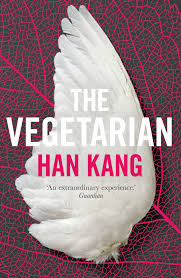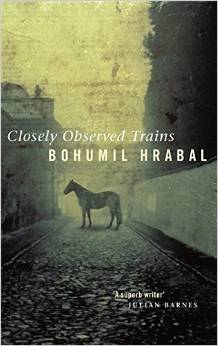Normal
0
false
false
false
EN-US
JA
X-NONE
/* Style Definitions */
table.MsoNormalTable
{mso-style-name:”Table Normal”;
mso-tstyle-rowband-size:0;
mso-tstyle-colband-size:0;
mso-style-noshow:yes;
mso-style-priority:99;
mso-style-parent:””;
mso-padding-alt:0cm 5.4pt 0cm 5.4pt;
mso-para-margin:0cm;
mso-para-margin-bottom:.0001pt;
mso-pagination:widow-orphan;
font-size:12.0pt;
font-family:Cambria;
mso-ascii-font-family:Cambria;
mso-ascii-theme-font:minor-latin;
mso-hansi-font-family:Cambria;
mso-hansi-theme-font:minor-latin;
mso-ansi-language:EN-US;}

Yeong-hye has a dream, and the following morning becomes a vegetarian, much to her husband’s disgust. From that point forward Yeong-hye starts to fade from herself, her refusal to eat any living thing results in mental and physical decline.
I am going to struggle to explain this book to you, dear readers, but I’ll have a go, and if you don’t read any more of this blog post, then just read this: Get a copy of this book, read it and be amazed.
The story is told in three parts. Yeong-hye’s husband, a frankly horrible man who works in an ordinary job in an office and is shocked at his wife’s change, narrates the first section of the book. Rather than try and understand and help her, he leaves her. Admittedly, She is firmly committed to her newfound lifestyle, but she doesn’t explain why.
The second part focuses on Yeong-hye’s brother-in-law, an artist, who becomes obsessed with her. In the final section we see her older sister trying to help Yeong-hye, who by now is fading, she isn’t eating and is in mental health facility.
We hear very little from Yeong-hye herself, other than some short paragraphs detailing her thoughts, which range the mundane to the bizarre.
Taking the story on face value, it is a sad account of how a young woman for reasons known only to her, starves herself and succumbs to an eating disorder. I am not going to claim I know what the underlying meaning of the book is, although it feels to me to be a parable. Once I read it, and looked back on it, I could see multiple layers fluttering within it, but all of them quite hard to grasp. It is haunting, and violent, and made me question free will, the right to die, families and personal principles.
The language is rich, shocking and colourful, and I suspect that each person who reads it will take something different from it. I will re-read this, perhaps next year to see if my interpretations are different. I have a feeling that this is one of those books which impacts you in vastly different ways depending on when you read it.









